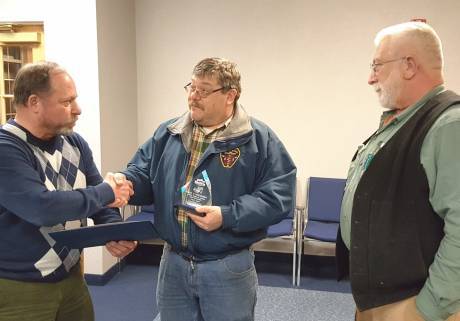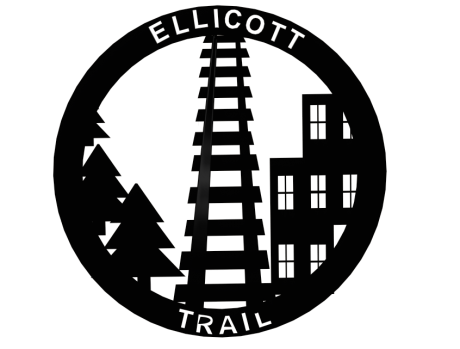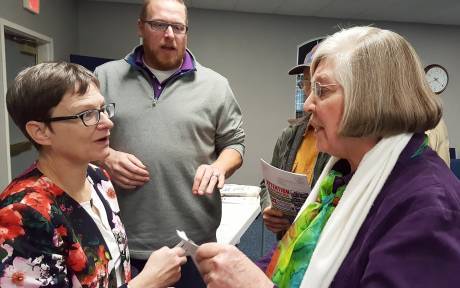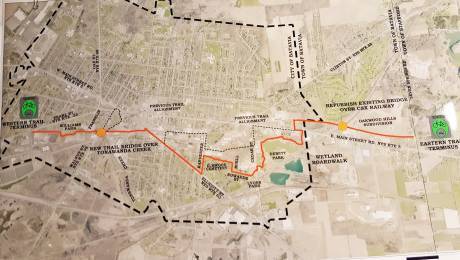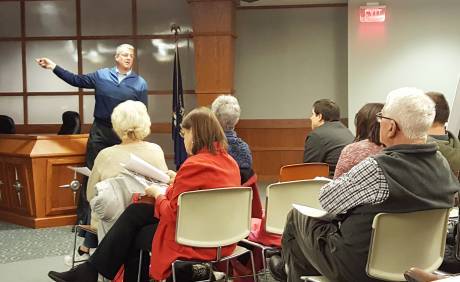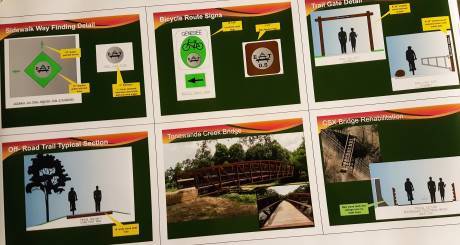Waste to Energy rep gives Town officials much to 'digest' when it comes to green community possibilities
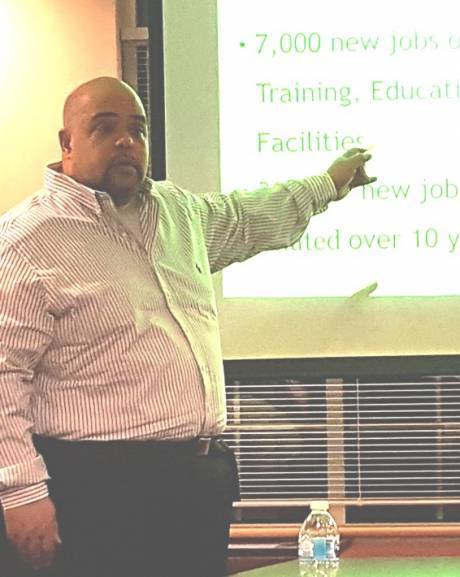
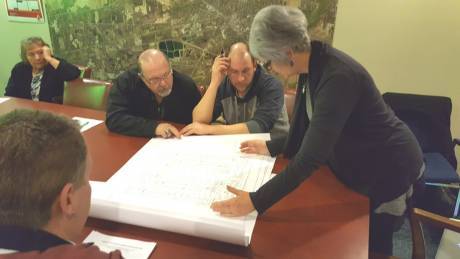

Armed with $1.6 billion in green bonds earmarked for the Finger Lakes Region and the worldwide emergence of combined heat and power technologies, a representative of a Georgia-based green community development firm encouraged Town of Batavia officials tonight to consider contracting with his company on a large-scale energy-efficient complex.
“Your investment is the land. We can start with 10 acres and if you have more and can develop more, we will develop more,” said Christopher Wilson of Rochester, NE business development president for Waste to Energy Inc., as he spoke to Town Planning Board and Town Board members at Town Hall on West Main Street Road.
Wilson, in his presentation and question-and-answer period that followed, said the Batavia area – situated between two metropolitan cities – is a prime location for a green development, one void of gasoline-powered automobiles and energy sources that create harmful emissions.
That, he said, is where Waste to Energy Inc. comes in.
Through the use of CHP machines of varying sizes and capacities, Waste to Energy has the ability to “take municipal waste and power it, and then take the by-products to make building materials and create jobs,” Wilson said, noting that CHPs are used at United Memorial Medical Center, the former Genesee County Nursing Home and at O-At-Ka Milk Products.
“It’s called an Eco-Center … where people can work, play, live and enjoy the surrounding area and its environment,” he said. “The catch phrase is ‘immersion’ – where technology and nature come together to make a greener tomorrow today.”
According to the American Council for an Energy-Efficient Economy website, combine heat and power (CHP) systems, also known as cogeneration, generate electricity and useful thermal energy in a single, integrated system.
Heat that is normally wasted in conventional power generation is recovered as useful energy, which avoids the losses that would be incurred from separate generation of heat and power. While the conventional method has a typical combined efficiency of 45 percent, CHP systems can operate at levels as high as 80 percent.
Waste to Energy is setting up pilot programs – in Maryland, South Carolina and (in conjunction with the Federal Emergency Management Agency) in Puerto Rico and California, Wilson said. He said should the Town of Batavia contract with his company it would be the first in this area.
Wilson said an Eco-Center could consist of all or a combination of housing, retail, manufacturing, entertainment and educational entities, and would produce high-paying jobs where even “the guy that mops the floor will make $18 an hour with benefits and a 401K.”
He said an eco-center seamlessly weaves park land, housing, restaurants and comfort in a setting that “promotes local entrepreneurship and local development.”
“I know that we have a problem in Rochester with keeping our millennials. How do we keep them here?” he said. “Give them opportunities right here in Batavia and maybe they will look inward instead of outward.”
Wilson said his company has investors already set up to buy green bonds, and that its concept is “already 45 percent pre-sold, no matter where we put it.”
He said that Waste to Energy -- after receiving the land commitment from a municipality and direction on what the community desires in development -- oversees the site’s construction and manages its workforce and income-producing tenants – both commercial and residential as warranted. He also noted that the complex doesn’t need to accept waste from other sites to survive, adding that the facility can be “self-sustaining.”
Planners said they liked the idea, but were unconvinced in light of all the promises being made by Wilson.
“Conceptually, it sounds real cool, but there’s got to be some kind of catch here,” Paul Marchese said. “The money (to pay for it) has got to come from somewhere. It has to make financial sense for your investors … I need to understand the whole nine yards, and where the dollars are coming from. I don’t want to be involved in something that may be an albatross in 20 years.”
Wilson countered by saying his company has done its homework over the past 10 years, lining up financial partners and investors that believe in the business model.
“Let’s say this guy (Wilson) was actually telling the truth this time,” he said. “This is a joint venture. We need a commitment from you; we will draft a contract and come up with a plan together.”
Town Engineer Steve Mountain said that the Town already conducted a study – called Townville – which incorporates progressive zoning, design and green energy practices – and said he could forward that on to Wilson.
The Townville concept is currently 10 acres, but could be expanded to 100 or 200 acres and include 100 housing units.
“With your plan and using our technology, now your abilities have been expanded exponentially,” Wilson offered.
Wilson said it would take a year to build the development, with his company expecting to "be profitable by the 24th month."
Town officials said they plan to discuss the proposal further.
Photos at top -- Christopher Wilson of Waste to Energy Inc.; Town planners Lou Paganello and Jonathan Long and Town Board Member Patti Michalak look at Eco-Center design; large CHP or cogeneration system. Photos by Mike Pettinella.

